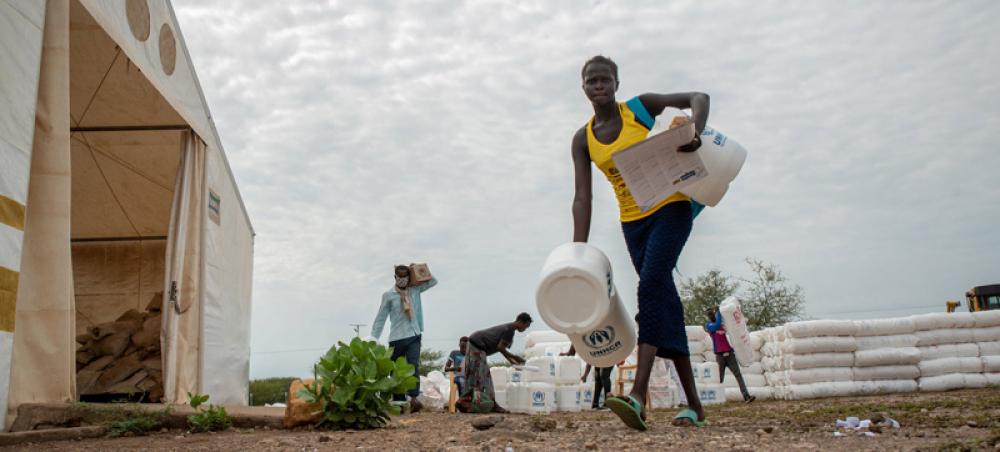Just Earth News | @justearthnews | 25 May 2020

To strengthen and advance public health services for millions of forcibly displaced people globally, two United Nations signed an agreement on Thursday to better protect some 70 million from COVID-19.
The new pact, signed by the head of the World Health Organization (WHO) and UN refugee agency (UNHCR), updates and expands a 1997 agreement between the two and covers around 26 million people - 80 per cent of whom are refugees sheltering in low and middle-income countries with weak health systems.
The revised contract also provides assistance to another 40 million who are internally displaced.
“UNHCR’s long-term partnership with WHO is critical to curb the coronavirus pandemic and other emergencies – day in, day out, it is improving and saving lives of millions of people forced to flee their homes”, said UNHCR chief Filippo Grandi, adding that the strengthened corporation would “directly benefit refugees, asylum seekers, internally displaced people, and those who are Stateless.”
Meanwhile, WHO Director-General Tedros Adhanom Ghebreyesus pointed out that "the principle of solidarity and the goal of serving vulnerable people underpin the work of both our organizations".
"We stand side-by-side in our commitment to protect the health of all people who have been forced to leave their homes and to ensure that they can obtain health services when and where they need them”, he stated.
COVID-19 Solidarity Response Fund
During the signing, UNHCR also joined the first-of-its-kind COVID-19 Solidarity Response Fund, which allows individuals, companies and organizations across the world to directly contribute to the WHO-led global response helping countries prevent, detect and respond to the coronavirus.
“The ongoing pandemic only highlights the vital importance of working together so we can achieve more", maintained Tedros.
Launched on 13 March, the fund has $214 million in its coffers to date, $10 million of which will support UNHCR’s work, including by providing hygiene and medical supplies and establishing isolation units in Jordan, Kenya, Lebanon, South Sudan and Uganda.
The funds will also support innovative global preparedness activities.
“By joining forces with the Solidarity Response Fund, UNHCR can work together on the ground with WHO to better ensure that the preparedness, prevention and public health response measures to COVID-19 are in place and that much-needed aid can reach refugees, displaced people and their host communities”, Mr. Grandi concluded.
New, old partnership
UNHCR and WHO have worked together for more than 20 years, safeguarding the health of some of the world’s most vulnerable populations.
They have collaborated in providing health services to refugees in every region, from the onset of an emergency and through protracted situations.
And have consistently advocated for the inclusion of refugees and Stateless people in the national public health plans of host countries.